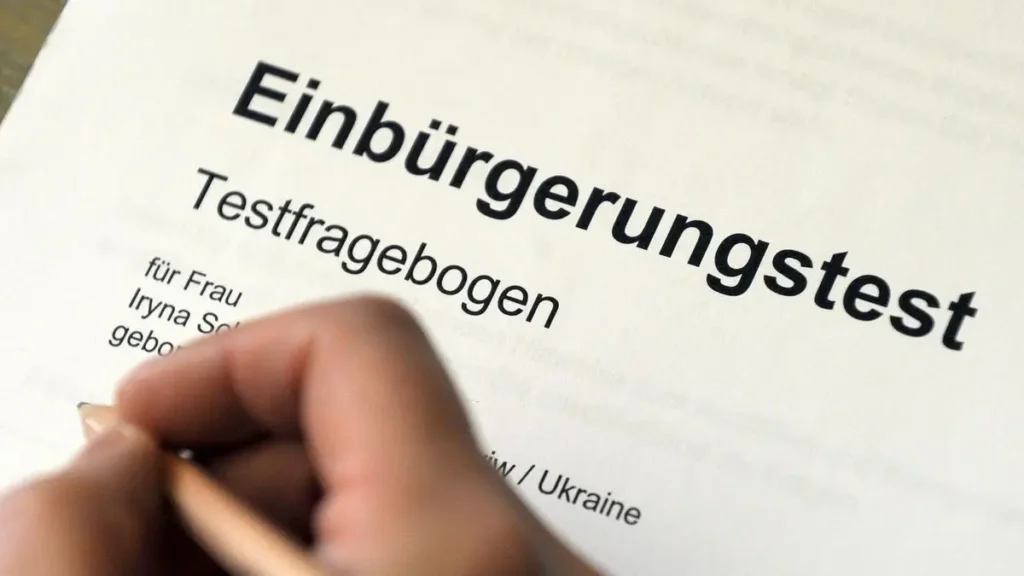Germany, with its robust healthcare system and high demand for skilled professionals, has become an attractive destination for nurses from around the world. As these healthcare heroes contribute to the German society, many consider making Germany their permanent home through naturalization. This comprehensive guide delves into the process of German Naturalization for Nurses, taking into account the recent changes brought about by the new German citizenship law.
- Overview of German Citizenship
- The Latest German Citizenship Law 2024
- Eligibility Requirements for Nurses
- The Naturalization Process
- Language Requirements
- Integration Course and Citizenship Test
- Dual Citizenship Options
- Benefits of German Citizenship for Nurses
- Challenges and Considerations
- Support and Resources
- Frequently Asked Questions
Overview of German Citizenship
German citizenship offers numerous benefits, including the right to vote, unrestricted travel within the European Union, and access to various social benefits. Traditionally, Germany has had stringent naturalization requirements, but recent legislative changes aim to make the process more accessible to skilled professionals, including nurses.
The Latest German Citizenship Law 2024
In 2023, the German government introduced significant reforms to its citizenship law, making it easier for foreigners to become German citizens. These changes, which came into effect in 2024, have important implications for nurses seeking naturalization.
Key changes include:
- Reduction in the required residency period
- Expanded dual citizenship options
- Streamlined language requirements
- Recognition of integration efforts
These reforms reflect Germany’s commitment to attracting and retaining skilled professionals, particularly in critical sectors like healthcare.
Eligibility Requirements for Nurses
To be eligible for German naturalization, nurses must meet several criteria:
- Residency: Under the new law, the general residency requirement has been reduced from 8 years to 5 years. However, for skilled professionals like nurses who demonstrate exceptional integration, this can be further reduced to 3 years.
- Legal Status: You must have a valid residence permit at the time of application.
- Financial Stability: You should be able to support yourself and your dependents without relying on social benefits.
- Clean Criminal Record: A clean criminal record is essential for naturalization.
- Professional Qualification: Your nursing qualifications must be recognized in Germany.
- Integration: Demonstration of integration into German society is crucial.
The Naturalization Process
The German Naturalization for Nurses typically involves the following steps:
- Gather Required Documents: This includes your passport, residence permit, birth certificate, proof of income, and nursing qualifications.
- Language Proficiency Proof: Provide evidence of your German language skills (more on this in the next section).
- Complete the Integration Course: If not already done, attend and complete the integration course.
- Pass the Naturalization Test: Take and pass the citizenship test.
- Submit Application: File your naturalization application at the local citizenship office (Staatsangehörigkeitsbehörde).
- Interview: Attend an interview with immigration officials.
- Oath of Allegiance: Upon approval, take the oath of allegiance to the German constitution.
- Receive German Citizenship: Obtain your German passport and citizenship certificate.
Language Requirements
Proficiency in the German language is a crucial aspect of the naturalization process. The new law maintains the requirement for B1 level German proficiency according to the Common European Framework of Reference for Languages (CEFR). However, it now offers more flexibility:
- B1 level is generally required
- In some cases, B2 level may be necessary, especially for professional advancement
- For exceptional integration cases, A2 level might be accepted
For nurses, demonstrating higher language proficiency can be advantageous, not only for the naturalization process but also for career progression in the German healthcare system.
Integration Course and Citizenship Test
The integration course is a fundamental part of the naturalization process. It consists of two main components:
- Language Course: This helps improve your German language skills.
- Orientation Course: This provides essential knowledge about German society, culture, and legal system.
Your understanding of German law, society, and living conditions is evaluated on the German citizenship test, which is normally given at the conclusion of the integration course. There are 33 multiple-choice questions total, and in order to pass, you must successfully answer at least 17 of them.
Dual Citizenship Options
One of the most significant changes in the new German citizenship law is the expanded provision for dual citizenship. Previously, most non-EU citizens had to give up their original citizenship to become German citizens. Under the new law:
- Dual citizenship is now generally allowed
- You can retain your original citizenship when acquiring German citizenship
- This change is particularly beneficial for nurses from non-EU countries
However, it’s important to check the laws of your home country regarding dual citizenship, as some countries may not allow it.
Benefits of German Citizenship for Nurses
Obtaining German citizenship offers numerous advantages for nurses:
- Job Security: As a German citizen, you have unrestricted access to the job market.
- Career Advancement: Citizenship can open doors to senior positions in healthcare institutions.
- Social Benefits: Full access to Germany’s comprehensive social security system.
- Political Participation: The right to vote in all elections.
- EU Mobility: Freedom to live and work in any EU country.
- Travel Benefits: Visa-free travel to many countries worldwide.
- Education Opportunities: Access to free education and training programs.
- Family Reunification: Easier process to bring family members to Germany.
Challenges and Considerations
While the path to German citizenship has been simplified, nurses should be aware of potential challenges:
- Language Barrier: Achieving the required German proficiency can be demanding.
- Cultural Adaptation: Adjusting to German culture and work ethics may take time.
- Recognition of Qualifications: Ensuring your nursing qualifications are recognized in Germany.
- Bureaucratic Process: Navigating the paperwork and procedures can be complex.
- Time Investment: The naturalization process, including integration courses, requires significant time commitment.
- Potential Loss of Original Citizenship: If your home country doesn’t allow dual citizenship.
Support and Resources
Nurses pursuing German citizenship can access various support systems and resources:
- BAMF (Federal Office for Migration and Refugees): Offers integration courses and citizenship information.
- Local Integration Centers: Provide guidance on the naturalization process.
- Professional Associations: Organizations like the German Nurses Association offer support to foreign nurses.
- Language Schools: Numerous institutions offer German language courses tailored for healthcare professionals.
- Online Resources: Websites like “Make it in Germany” provide valuable information for skilled immigrants.
- Legal Advice: Consider consulting with immigration lawyers for complex cases.
- Employer Support: Many healthcare institutions assist their international staff with integration and naturalization processes.
Frequently Asked Questions
- Q: How long does the naturalization process take for nurses?
A: The process typically takes 1-2 years from application to oath, but can vary based on individual circumstances. - Q: Can I apply for citizenship if I’m on a temporary work visa?
A: You need a permanent residence permit before applying for citizenship. - Q: Do I need to give up my original citizenship?
A: Under the new law, you can generally retain your original citizenship, but check your home country’s laws. - Q: Is there an age limit for naturalization?
A: There’s no upper age limit, but applicants must be at least 16 years old. - Q: Can my family members also apply for citizenship?
A: Yes, but they must meet the eligibility criteria independently. - Q: What if I fail the citizenship test?
A: You can retake the test. There’s no limit on attempts, but each attempt may incur a fee. - Q: How does the naturalization process affect my pension rights?
A: Becoming a German citizen doesn’t affect your pension rights. Previous contributions remain valid.
The path to German citizenship for nurses has been made more accessible with the new citizenship law. While the process still requires dedication and effort, the benefits of becoming a German citizen are substantial. As a nurse, obtaining German citizenship not only secures your future in one of the world’s leading healthcare systems but also opens up a world of opportunities within Germany and the European Union.
Remember, every naturalization journey is unique. Stay informed about the latest regulations, seek support when needed, and approach the process with patience and determination. Your skills and dedication as a nurse are valued in Germany, and citizenship is a way for the country to recognize your contribution and welcome you as a permanent member of its society.
By embarking on this path, you’re not just changing your legal status; you’re opening a new chapter in your personal and professional life. Embrace the journey, and welcome to the possibility of calling Germany your new home!




